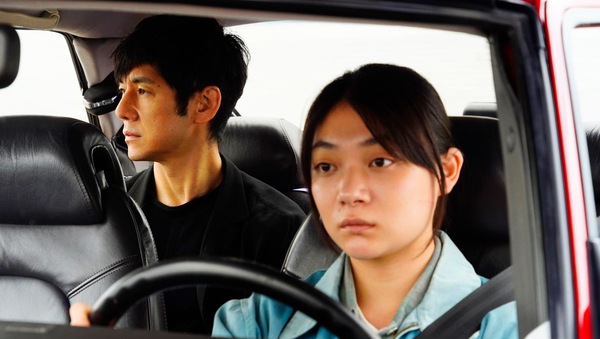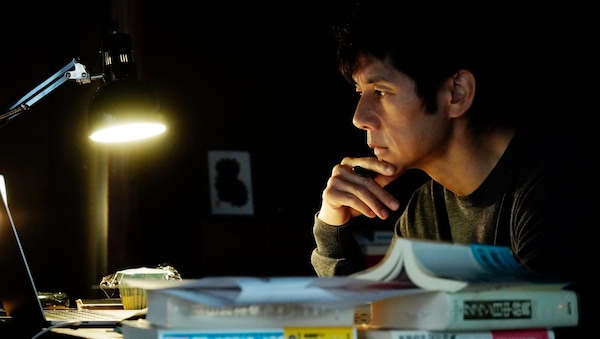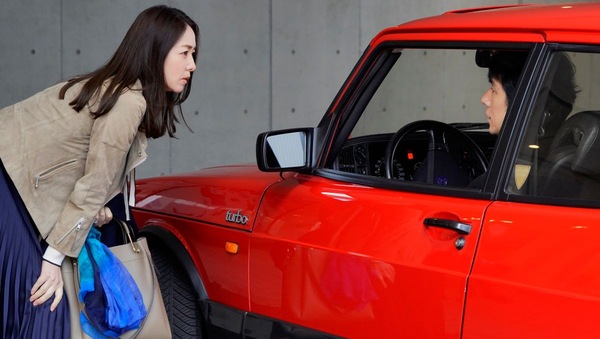Drive My Car review: Ryusuke Hamaguchi’s film is a touching story of love, loss and letting go
Drive My Car is a striking film, visually and in terms of its storytelling, which should not be missed.

Hidetoshi Nishijima and Toko Miura | Image via Janus Films
Last Updated: 10.56 AM, Apr 01, 2022
Story: An ageing, widowed theatre actor is delegated a female chauffeur against his will after he’s invited to direct a revival of Anton Chekhov’s play Uncle Vanya at a theatre festival far away from his hometown.
Review: Streaming platforms have not only spoiled me for choice, but have given me the unfettered luxury of pausing and unpausing a show or movie that has corroded every last bit of my concentration. So, watching this three-hour-long movie, that too in a theatre, was quite the task. Ryusuke Hamaguchi’s film bases itself on Haruki Murakami’s short story of the same name, and takes its own sweet time to establish the setting, the characters, their emotions and motivations to create a touching tale of love, loss and letting go of the past to begin anew.
The unbelievably handsome Hidetoshi Nishijima plays Yusuke Kafuku, an ageing stage actor and theatre aficionado grappling with the sudden death of his wife Oto (Reika Kirishima). He’s known to put up multilingual productions of Chekhov’s Uncle Vanya, and two years after Oto’s passing he’s invited to direct the play in Hiroshima for a local theatre festival. Kafuku drives a vintage Saab Turbo 900, the only thing that reminds him of the better times when his wife was alive and his career was at its peak. So, when the theatre company suggests he be chauffeured around, he’s determined to not let go of the wheel. He only relents after Misaki Watari (Toko Miura), a reticent 20-something dealing with her own share of trauma, proves herself to be competent enough for Kafuku’s standards.

The initial hour of the film gives away nothing about where the story is headed, what exactly Hamaguchi and co-writer Takamasa Oe are trying to achieve. But as you near the middle and the end, which unfurls equally slowly, it all starts to make sense. The overall narrative, on the surface straightforward but in hindsight as complex as ever, is methodically planned to draw you into the lives of the lead characters.
Misaki and Kafuku travel back and forth from the theatre to his hotel every day, and in this hour-long scenic car ride where Kafuku listens to the play’s taped recordings without fail, they develop an affinity towards each other. Being too far apart in age and background, the two have nothing in common. But it’s the loneliness, the long-buried regret of never having that last conversation — for Kafuku, confronting his wife’s infidelity and for Misaki, her late mother’s abuse — that brings them closer, especially in the final scenes. Both of them seem to be withdrawn from the present but are very clearly still suffering quietly, repressing every ounce of overt emotion, from the events of their respective lives.
Nishijima proves why he is Japan’s most celebrated actor because it’s not the dialogue that aids his performance, it’s his expressions, the quietude in his disposition that gives everything away. For every other character too, Hamaguchi relies on silence, their facial and body language to effectively convey more than words could.

Drive My Car is a fitting adaptation of Murakami’s work, probably after Burning starring the hugely talented Steven Yuen, Jeon Jong-seo and Yoo Ah-in. The overarching themes, and the protagonist who smokes a ton, listens to music on vinyl, seems to enjoy good whiskey and has an almost unhealthy attachment to the past — as far as I can recall this is all usual to Murakami stories — are aptly captured in this cinematic rendition. Then there’s the treatment of the female characters, who only further the protagonist’s character development in Murakami's stories. Here, Oto is sexualised in her auto-eroticism, in her habitual pattern of churning out fragmented stories after coitus, her infidelity. It feels a little strange, but her behaviour and choices are not misplaced, there is an explanation laid down there.
The film also has a simplicity to its cinematography (by Hidetoshi Shinomiya), which unearths beauty in the ordinary. Shinomiya captures the tranquillity of the Hiroshima landscape, like the sea right outside Kafuku’s quarters, the long-stretches of tunnels that the two drive through to visit Misaki’s hometown, that one scene where both characters go through a catharsis and realisation that holding on to their grief no longer serves them, the ultimate scene where Misaki drives away in the red Saab…and so on.
Verdict: In all my initial complaints about the slowness of the film, I eventually realised that in the flurry of quick-fix content, we have forgotten to relax and relish the little moments that rare films like Drive My Car have. It’s a striking film, visually and in terms of its storytelling which should not be missed, and proves itself worthy of the Best International Feature Oscar. It should have been the Best Picture winner too, but that is a conversation for another day.
Drive My Car releases on MUBI today. Watch the trailer here:
WHERE
TO WATCH
Subscribe to our newsletter for top content, delivered fast.

